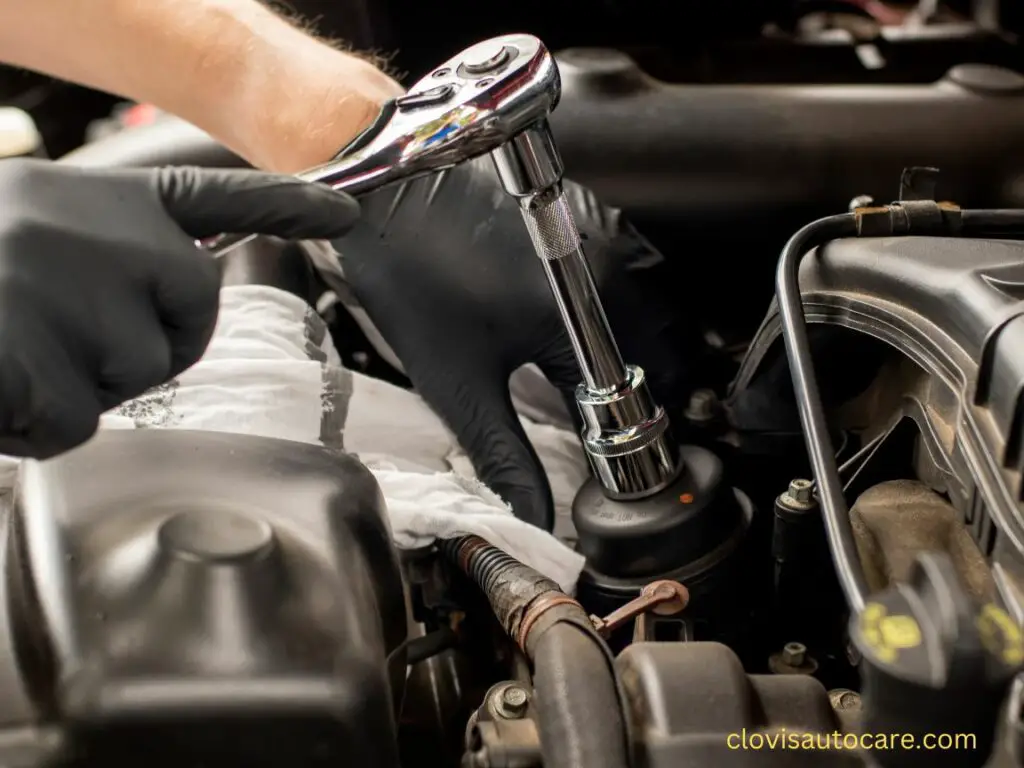
Ever found yourself standing in the auto parts aisle, overwhelmed by rows of oil filters, wondering which one is the right fit for your car? It’s not about how long you have been a driver.
Choosing the correct oil filter can feel like a guessing game, but it doesn’t have to be.
For those who require assistance, the Fram Oil Filter Look Up tool proves to be useful.
This user-friendly tool simplifies the process of selecting the ideal oil filter for your vehicle, guaranteeing the protection and smooth operation of your engine.
Fram, a trusted name in the automotive world, has made it easier than ever to match your car with the right filter using the Fram Oil Filter Look-Up.
This article was inspired by the insightful discussion Nathan Mades, a Fram filter expert, shared during a podcast interview.
He sheds light on the importance of choosing the right filter and how Fram is revolutionizing filter technology.
Be sure to check out the details below for a link to the podcast and more valuable insights into Fram filters.
Let’s explore how this tool works and why it’s a must-have for every car owner..
Contents
Key Takeaways
- The Fram Oil Filter Look Up tool simplifies the process of finding the right oil filter for your vehicle.
- Fram oil filters are known for their durability, advanced filtration, and wide compatibility.
- Regularly replacing your oil filter is essential for maintaining engine health and performance.
Don’t let oil filter confusion slow you down—use the Fram Oil Filter Look-Up tool and keep your car running smoothly.
How to Use the Fram Oil Filter Look Up Tool
Using the Fram Oil Filter Look Up tool is simple and straightforward. Here’s how you can find the right oil filter for your car in just a few steps
Step 1: Visit the FRAM Website
Start your journey by heading to the official FRAM website. The site is user-friendly and designed to help you navigate through their extensive range of products seamlessly.
You’ll find the Parts Search Wizard, which is your gateway to locating the right filter for your specific vehicle.
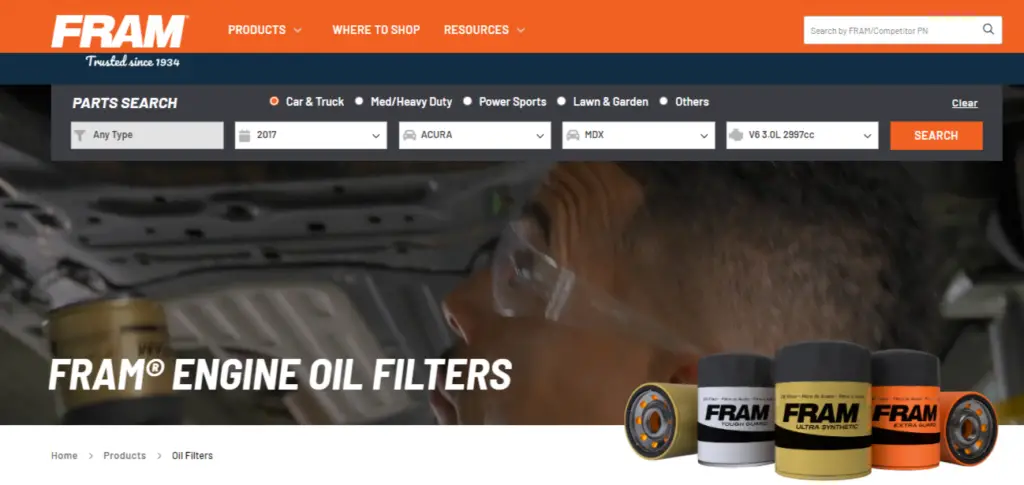
Step 2: Enter Your Vehicle Details
Once on the FRAM website, locate the Parts Search feature. Here’s what you need to do:
- Select your vehicle’s make (e.g., Ford, Honda).
- Choose the model (e.g., Accord, F-150).
- Input the year of your vehicle.
This information is crucial as it ensures that the search results are tailored specifically to your car, providing you with accurate options.
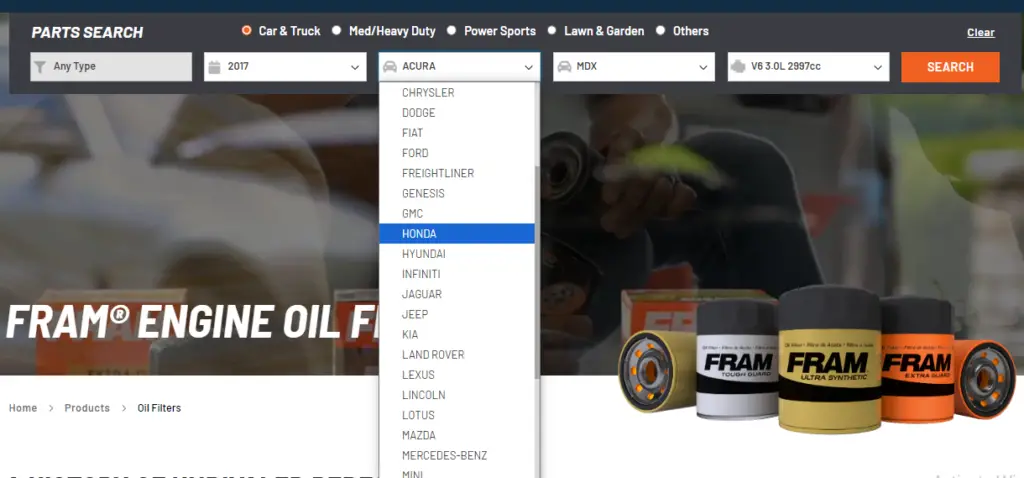


Step 3: Review Your Filter Options
After entering your vehicle details, click “Search.” The tool will generate a list of compatible FRAM oil filters for your vehicle.
You’ll see various options displayed, including:
- FRAM Extra Guard®: Ideal for everyday driving.
- FRAM Tough Guard®: Built for extreme conditions.
- FRAM Ultra Synthetic®: Perfect for those using synthetic oil.
Take a moment to review these options and consider factors such as your driving habits and engine requirements.
Each filter comes with detailed specifications, helping you make an informed decision.
Use the view details button on each filter to view all options.
The fact that you can print this page is what makes it even better for next time’s search.
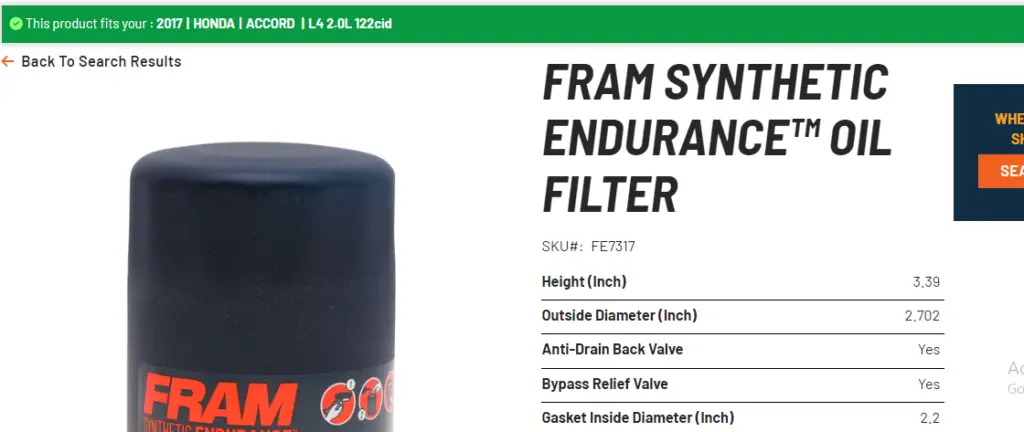
Step 4: Choose and Purchase Your Filter
Once you’ve identified the right filter, you can either purchase it directly through the FRAM website or find local retailers that stock it.
If you’re unsure about installation, many auto parts stores offer assistance or services to help you with the process.

Why Choose FRAM Oil Filters?
FRAM filters are not just popular; they are trusted by mechanics and car owners alike for several reasons:
- Wide Compatibility: Whether you drive a compact car or a heavy-duty truck, there’s a FRAM filter that fits your needs.
- Advanced Filtration Technology: FRAM filters trap up to 99% of harmful particles, ensuring optimal engine performance.
- Durability: Designed to withstand extreme conditions, these filters provide long-lasting protection.
- Eco-Friendly Options: Fram also offers eco-friendly filters for those looking to reduce their environmental impact.
For a deeper dive into the technology and philosophy behind FRAM filters, check out the “What You Should Know About Your Car’s Filters” podcast, where Nathan Mades shares valuable insights into their design and performance.
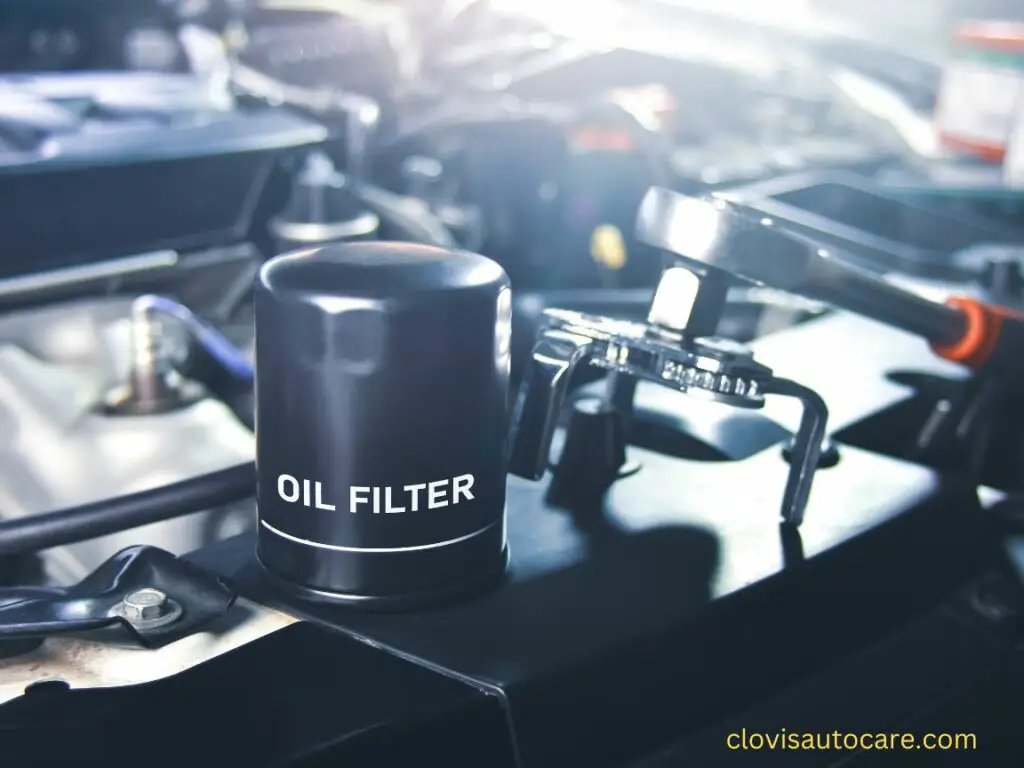
Types of Oil Filters: Understanding Your Options
When it comes to choosing the right oil filter for your vehicle, understanding the different types available can significantly impact engine performance and longevity.
Here’s a breakdown of the most common types of oil filters but Fram has this to say about common problems of oil filters irrespective of the type.

1. Spin-On Oil Filters
Spin-on oil filters are the most widely used type in modern vehicles. They come as a single unit that includes both the filter and the canister, making installation straightforward.
Benefits:
- Ease of Installation: Simply spin the filter onto the engine block.
- Compact Design: Takes up less space, making it suitable for various engine layouts.
- Integrated Bypass Valve: Many spin-on filters include a built-in bypass valve that allows oil to flow even if the filter is clogged.
2. Cartridge Oil Filters
Cartridge filters consist of a replaceable filter element housed within a metal or plastic casing.
The casing remains attached to the vehicle, while only the filter element needs replacing.
Benefits:
- Less Waste: Reduces environmental impact since only the filter element is discarded, not the entire housing.
- Potentially Better Filtration: Some cartridge filters can offer superior filtration capabilities due to their larger surface area.
3. High-Efficiency Oil Filters
These filters are designed to capture smaller particles than standard filters might miss. They often use advanced filtration media to improve performance.
Benefits:
- Enhanced Filtration: Capable of trapping particles as small as 20 microns, which helps protect sensitive engine components.
- Longer Service Life: Typically last longer than standard filters, making them a cost-effective choice in the long run.
4. Synthetic Oil Filters
Synthetic oil filters are designed specifically for use with synthetic motor oils. They often feature advanced filtration technology and materials.
Benefits:
- Superior Performance: Provide better filtration and flow rates compared to conventional filters, particularly under extreme conditions.
- Extended Change Intervals: Often recommended for longer oil change intervals, saving time and maintenance costs.
5. Magnetic Oil Filters
These innovative filters use magnets to attract and capture metal particles in the engine oil, preventing them from circulating through the engine.
Benefits:
- Additional Protection: Helps reduce wear on engine components by capturing harmful metal debris.
- Reusable Design: Some magnetic filters can be cleaned and reused, contributing to less waste.
Conclusion
Finding the right oil filter doesn’t have to be a hassle. With the Fram Oil Filter Look Up tool, you can confidently choose the best filter for your car in just a few clicks.
Whether you’re a seasoned DIYer or new to car maintenance, Fram’s trusted quality ensures your engine stays protected.
Try the tool today and experience the difference for yourself
Ready to find the perfect oil filter for your car? Try the Fram Oil Filter Look-Up tool today and take the guesswork out of your next oil change
FAQs
1. How often should I change my oil filter?
It’s recommended to change your oil filter every time you change your oil, typically every 3,000–5,000 miles.
2. What happens if I use the wrong oil filter?
Using an incorrect filter can lead to poor oil flow and potential engine damage.
3. Can I use this tool for older vehicles?
Yes! The FRAM database includes options for a wide range of vehicles, including older models.
4. What are some signs that indicate a clogged or faulty oil filter?
Common signs include reduced fuel efficiency, decreased engine performance, unusual engine noises, a low oil pressure warning light illuminating the dashboard, or visible debris in old engine oil during an oil change.
5. Can I clean and reuse an oil filter?
No, oil filters are not designed to be cleaned and reused. It is recommended to always replace the oil filter with a new one during each oil change for optimal engine protection.
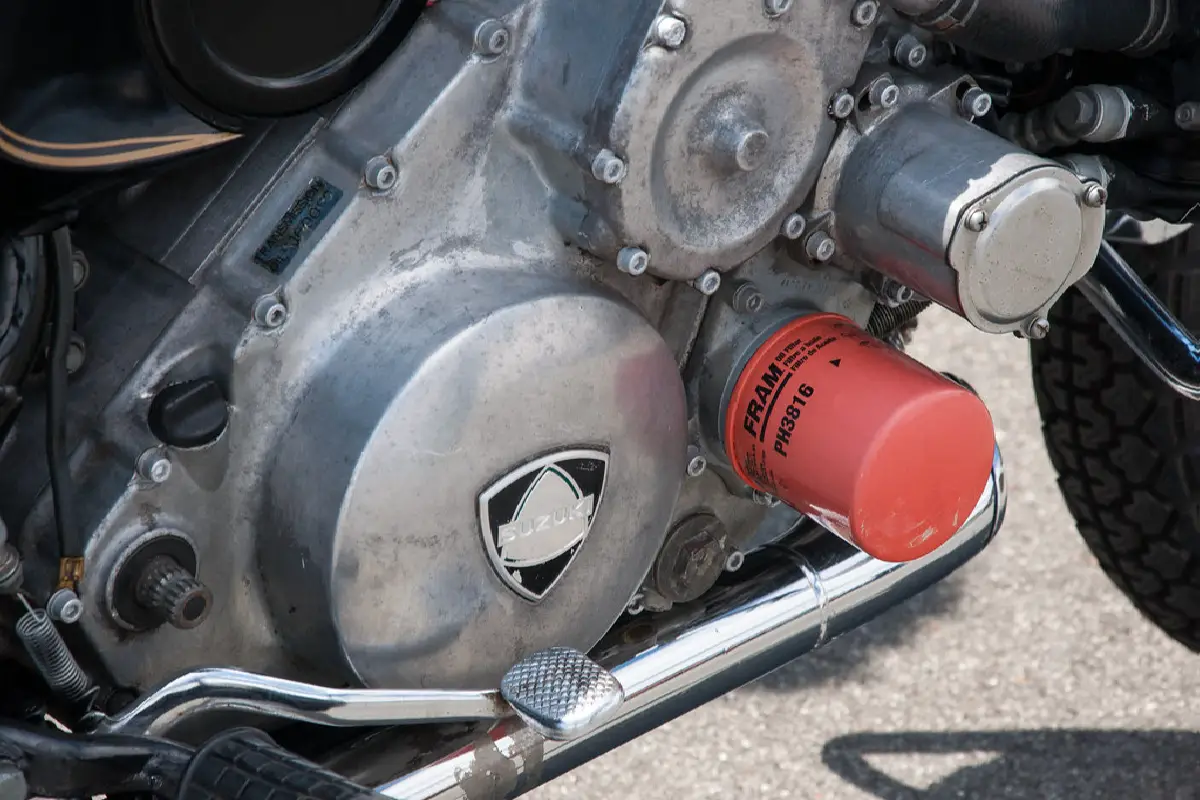



Leave a Reply